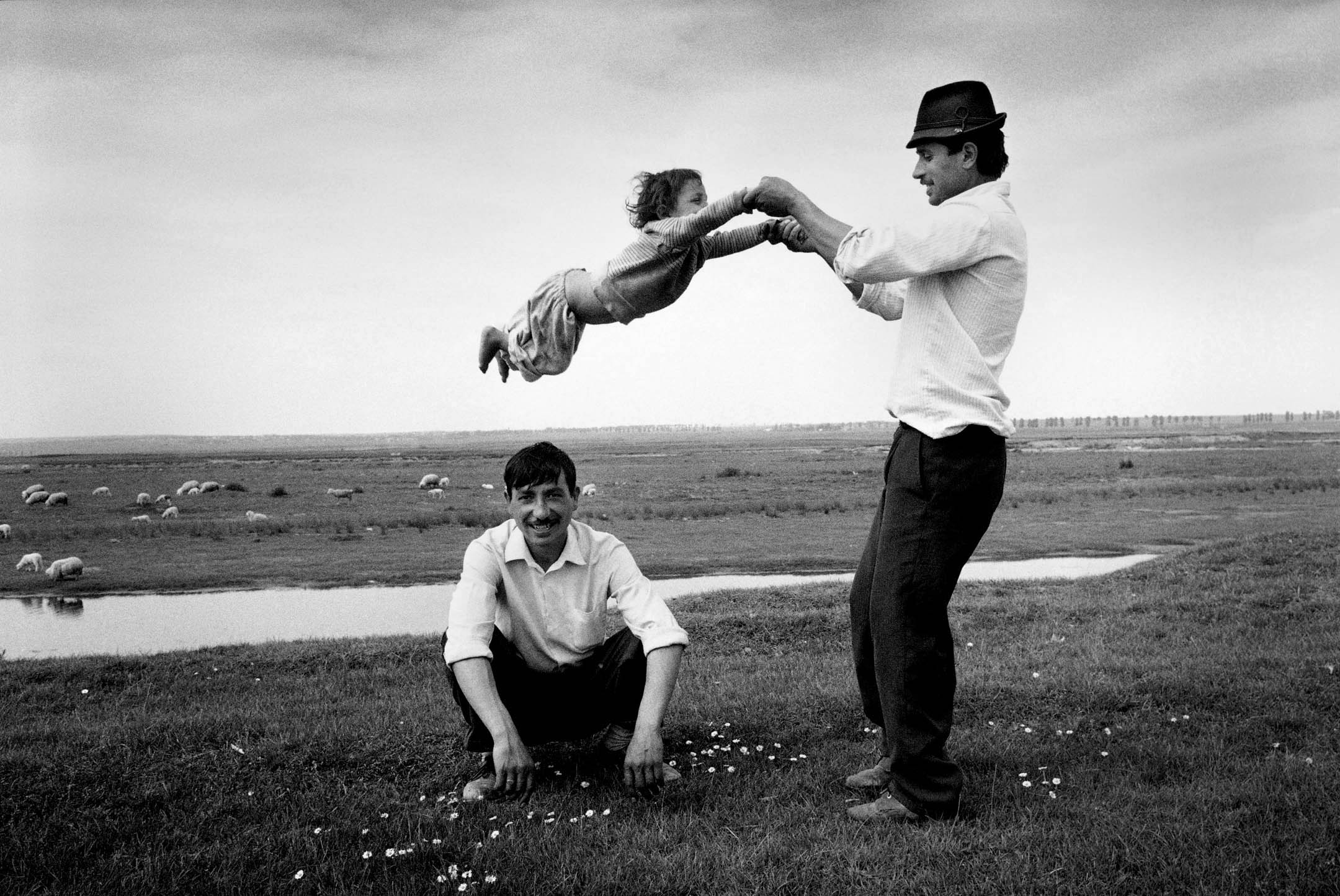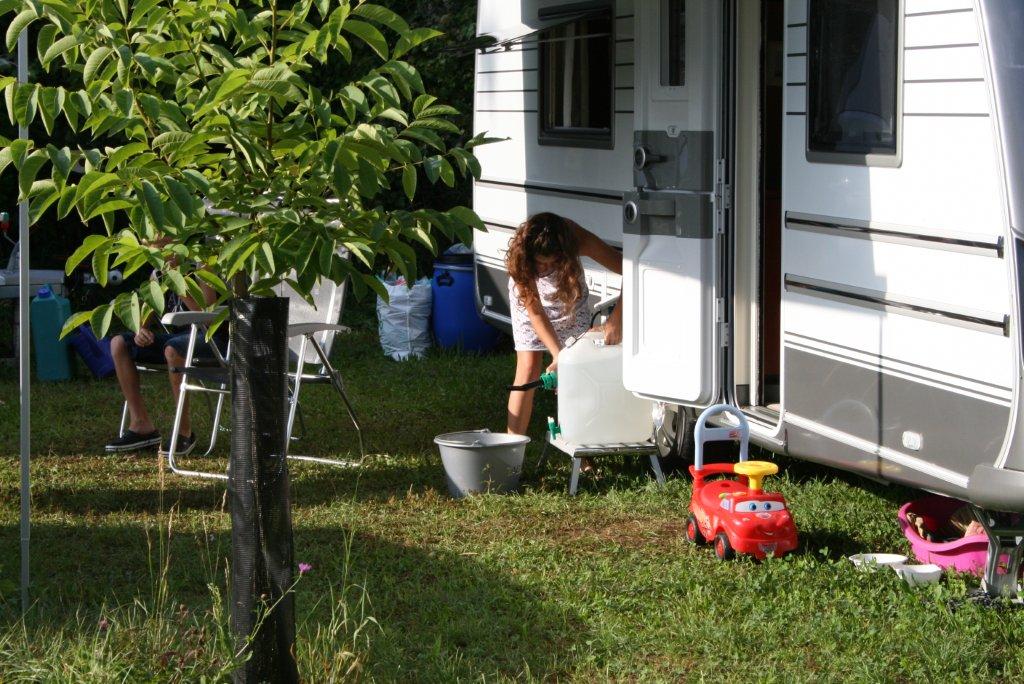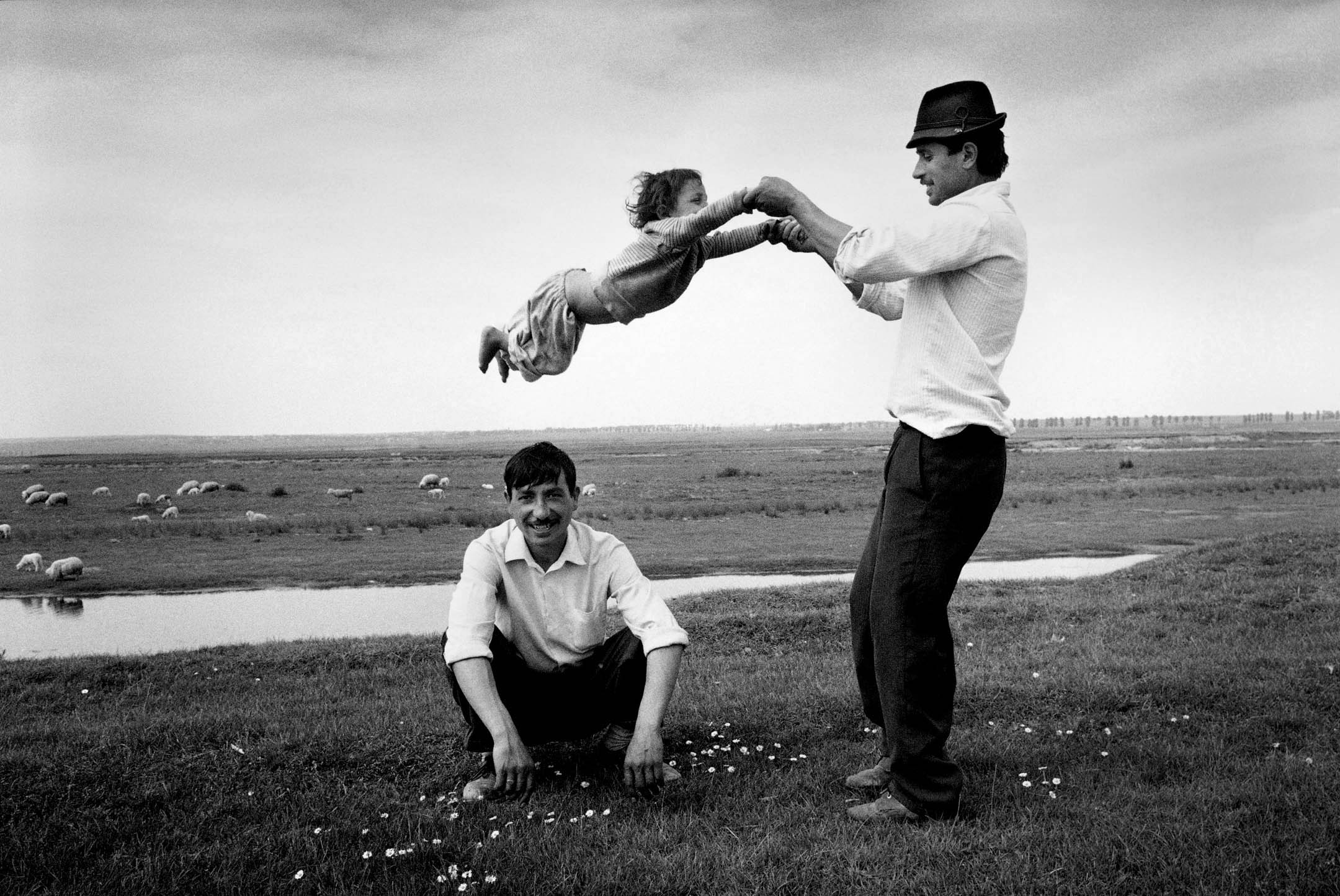Gypsy tensions magnify culture clash

The spike in the number of Roma gypsies crossing Switzerland and the lack of camping spots have led to tensions with locals. Villages feel they have to fend for themselves, while travellers say they are all being tarred with the same brush.
Switzerland has had a very heated summer when it comes to the traveller community. There have been large scale camps, illegal camps, property damage, criminal complaints. Shots have even been fired. French-speaking Switzerland has been particularly affected as it is a popular destination with French Roma because of the common language.
The situation has become even more delicately balanced with an influx of Bulgarian and Romanian Roma, who benefit from European free movement rules allowing them to come and beg in richer countries. Switzerland has also seen a steady flow of Roma asylum seekers from Serbia.
Objectors have used the ill feeling generated by these developments to propose tough measures, such as the confiscation of caravans if a crime is committed, or the creation of an international “gypsy alert” system.
“It wouldn’t be a problem if there were enough camping grounds for everyone in this country. But there aren’t even enough for us,” says Daniel Huber, head of an organisation for the nomadic Jenish people in German-speaking Switzerland.
“We already have the feeling that we don’t have the same rights as people who live in one place, although we have the same obligations. And these problems are all the worse for us Jenish, because people assume we are the same as the Roma people.”
Different groups
The Jenish are often called the fifth minority of Switzerland. They number 30,000 and go to school, pay taxes and complete their military service as other citizens do, but are often viewed with suspicion by sedentary people. Though they normally try and keep a low profile, incidents during the summer have not helped their attempts to improve their image.
“Lumping these two peoples [Roma and Jenish] together is of itself racist. You have to distinguish between expectations and duties of the state towards its own citizens, and the expectations it has in other, very different situations,” says Doris Angst, director of the Federal Commission Against Racism.
“People probably don’t realise that the cultural differences between the Jenish and the Roma are wider than those between Jenish and sedentary people,” explains Urs Glaus, director of an organisation that tries to improve the lot of Swiss travellers.
“For example, a Roma person would not enter a toilet in full view of other people. This prudishness means that WCs are considered dirty and have sometimes been vandalised. You have to take this into account when designing infrastructure.”
“Every conflict involving the Roma makes the Jenish feel in danger, but they also put the Jenish into a quandary,” says Doris Angst.
“They want to distance themselves from trouble-makers, and at the same time want to defend them and the Jenish end up feeling trapped. It is not an ethnic dispute, but a territorial one. The government has the duty to protect this nomadic way of life and to make sites available to them.”
For Huber, “the biggest problem is that the cantons want us (the Jenish) to share the same camping grounds as the Roma, although our needs are not the same”.
“They travel in huge convoys, we stay in family-sized groups. They like to stay near major roads, we like to be in small spaces in the open air. All of this puts our people in danger.”
A territorial question
Around ten per cent of the Jenish are nomadic or semi-nomadic. “They have 14 sites available to them for the winter — this is about 30 per cent of what they need,” explained Glaus. “Many of these families spend the winter in an apartment.”
“In ten years, the number of summer camping grounds has gone from 51 to 42, and the majority of them are rather badly equipped. Many have poor access to water. These summer sites can only cover 60 per cent of demand,” he told swissinfo.ch.
Huber noted that there was a rise in demand for resources because more young people are returning to a nomadic way of life. In German-speaking Switzerland the campsites vary greatly.
“The worst canton is Schwyz, which has only one tiny campground although it is one of the places our people come from. However Glarus has a long history of welcoming us. Zurich, Aarau and soon Bern will also be fairly well equipped. That proves it is possible.”
French-speaking Switzerland is less well served in terms of resources for Swiss itinerants as well as foreign nomads. At the moment only cantons Vaud and Valais have campgrounds for large parties, with three sites between them.
And the number of travellers in large parties is rising. “We had 5,345 caravan nights in 2009, 10,149 caravan nights in 2011 and we already passed that number in August this year,” said Pierrette Roulet-Grin, a mediator for the traveller community from canton Vaud. “Our canton simply cannot handle the influx.”
Lack of political will
Observers say the solutions must come from politicians, but there doesn’t seem to be a concerted will to act. “In 2001, the government asked the cantons to create 30 new campsites and 30 new transit areas within ten years. In 2012, we are still ten sites off the mark,” said Glaus.
As in other areas of Swiss life, the federal system can slow things down. The cantons are expected to enact Bern’s decisions. Roulet-Grin said villages find this particular conundrum tough too.
“The government and the cantons sign new laws without really thinking about how they can be applied on the ground. The communes feel very alone, torn between the need to lodge nomads in an ordered way, without compromising public order and safety.”
The canton of Fribourg, for example, has given the green light to a Roma site near a motorway, but the construction has been put off till 2015 by the federal highway department, for budgetary reasons.
For the moment, problems around travellers are being solved by force. After the tensions this summer, Jacqueline de Quattro, justice minister in canton Vaud, decided that travellers who do not respect rules would be moved on by force.
Swiss communities must be very firm, the minister told the 24 Heures newspaper. “In order to harmonise procedures, I am going to issue standard procedures for the communes. We will set up a way to make a formal complaint to police, suggestions for how to put in claims for compensation, etc.”
She added that she would propose the same thing to all her counterparts in French-speaking Switzerland, “so that we can be in agreement on this”.
Roulet-Grin reckons that in the near future, the best solution would be to dissuade Roma who do not respect Switzerland’s rules from coming to the country.
“Swiss justice is simply too slow to punish those who vandalise and destroy what’s here. By the time something is done, they’re long gone. The justice system must be sped up, and work with the police to inflict fines on wrong-doers. Believe me, they understand that language very well.”
The Roma are of Indian origin and came to Europe after the 10th century. Their language is Romany.
They are estimated to number between 10 and 12 million, and constitute the largest minority group in Europe. The biggest population is in Romania, where they make up 10% of the population, or two million people. There are significant populations in Bulgaria, Hungary, Spain, Slovakia, Turkey and France.
They’ve been discriminated against since the 16th century, and 800,000 were killed by the Nazi regime during the Holocaust.
A nomadic people since the middle ages, originally from Austria, Germany and Switzerland, the Jenish number around 100,000 in Europe. They speak the Jenish language.
In Switzerland, 90% of travellers are Jenish. It is estimated there are 30,000, and that 3,000 to 5,000 are semi-nomadic.They live in clans of up to 20 people and no more than 6-8 caravans.
Since 1998, the Jenish have been protected by the Council of Europe convention on national minorities.
Camping ground: Swiss nomads rent a place at these sites all year round and spend the winter there, either in caravans or in mobile homes.
Transit area: An area for a short stay — up to a month, during the summer nomadic season. The itinerant lifestyle allows the Jenish to carry out their traditional jobs of show people, peddlers, plasterers and scrap-metal merchants.
Static place
: a family will get 150 m² on a camping ground and 100 m² on a transit area. A place will cost between SFr8 and SFr13 a day.
(Translated from French by Victoria Morgan)

In compliance with the JTI standards
More: SWI swissinfo.ch certified by the Journalism Trust Initiative


You can find an overview of ongoing debates with our journalists here. Please join us!
If you want to start a conversation about a topic raised in this article or want to report factual errors, email us at english@swissinfo.ch.